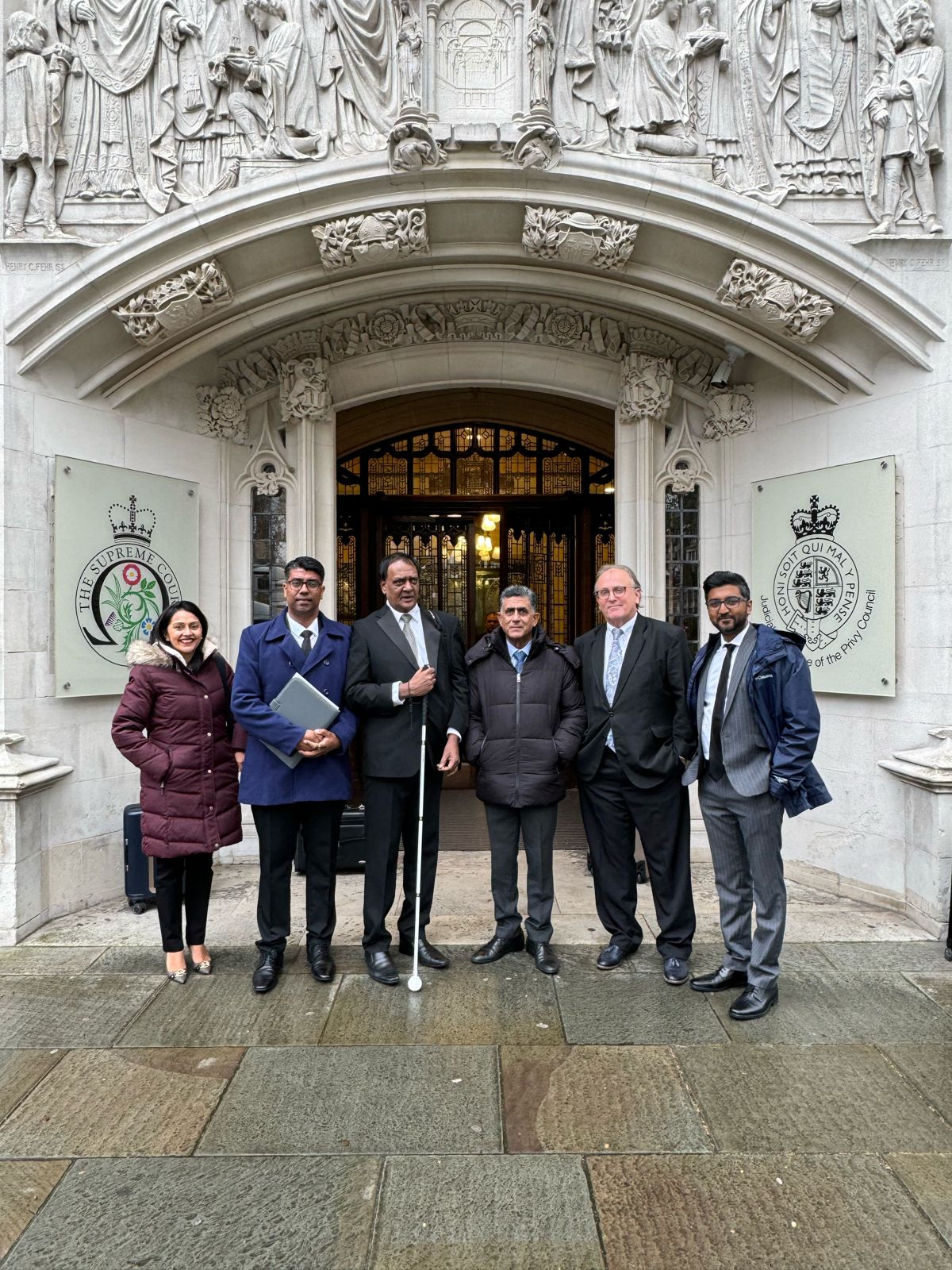Judgment Link : https://www.bailii.org/uk/cases/UKPC/2024/27.html
Etude Dya Ghose,Attorneys is pleased to share that the Judicial Committee of the Privy Council has allowed the appeal in the matter of Coomaravel Pyaneandee v Paul Lam Shang Leen & Ors [2024 UKPC 27], in which it acted as agent before the Board.
The appeal arises out of the Report of the Commission of Inquiry on Drug Trafficking (“the Report”) published on 27 July 2018 by the Commission, appointed by the then President of the Republic of Mauritius on 14 July 2015.
It was the case of the Appellant that the Report included passages that were critical of him, suggesting that he had had some involvement in attempting to pervert the course of justice and to shield drug traffickers, and that he was not given a fair opportunity to understand the allegations made against him and to put forward his case in response. The Appellant’s application for judicial review was dismissed by the Supreme Court of Mauritius, on the ground that the impugned extracts of the Report did not contain any finding by the Commission against the Appellant and are therefore not amenable to judicial review. It was also regretful that the written transcript of the evidence given by the Appellant was disclosed by the Respondent only before the JCPC.
In its judgment, the Board found that :
(1) The duty of candour in judicial review proceedings is well established in English law. A respondent to a judicial review claim is under a “very high duty … to assist the court with full and accurate explanations of all the facts relevant to the issue the court must decide”;
(2) Where a public authority relies on a document that is significant to its decision, it is generally considered good practice to exhibit the document as primary evidence;
(3) The Respondents owed a duty of candour to the Board;
(4) There is no strict rule that produces a dividing line as to amenability to judicial review between findings on one hand, and observations, comments or impressions on the other. The first question to be asked is whether a fair-minded, detached, and objective reader would conclude that passages in an inquiry report however they might be described (whether as findings, observations, comments, remarks, or recitals of evidence), either form a component part of an adverse decision affecting an individual or adversely affect an individual’s reputation;
(5) The impugned extracted were not mere comment or observations that led nowhere. They were allegations of unethical and/or criminal conduct against the Appellant and a fair-minded reader would think that there was sufficient substance in those allegations to warrant a full in-depth inquiry. The conclusion itself has the necessary quality of finality. They are liable to be acted upon by the police and are likely to influence any subsequent police investigation;
(6) Accordingly, the Supreme Court was wrong to hold that the impugned passages were a mere recital of the evidence before the Commission. The Supreme Court ought to have concluded that the impugned passages are amenable to judicial review;
(7) The Supreme Court further should have corrected the Respondents’ failure to provide the transcript of the Appellant’s evidence given to the Commission and ought to have required the production thereof;
(8) The Board has expressed other concerns about the Report and the procedure adopted by the Commission;
(9) The procedure adopted by the Commission in relation to the Appellant did not accord with the principles of fairness and natural justice and
(10) the Board has not seen the evidence relied on by the Commission to substantiate either that he was trying to pervert the course of justice or that he shielded drug traffickers. In the absence of any apparent evidential foundation for these allegations, they should not have appeared in the Report.
As such, the Board held that the impugned passages in the Report are amenable to judicial review and declared them to be in breach of the principles of fairness and natural justice. The Board further ordered that they should be disregarded and a link to this judgment be inserted on page 232 of the Report as it is published on the internet.
Etude Dya Ghose, Attorneys expresses its sincere gratitude to Me. Coomara Pyaneandee for the trust showed in it throughout this case, from special leave up till final judgment. I also congratulate and salute the outstanding work, dedication and expertise of Me. Rishi Pursem, SC, Me. Yves Hein and Me. Arvind Hemant Sookhoo Counsel, with whom I had the privilege and pleasure to work alongside on this matter.

